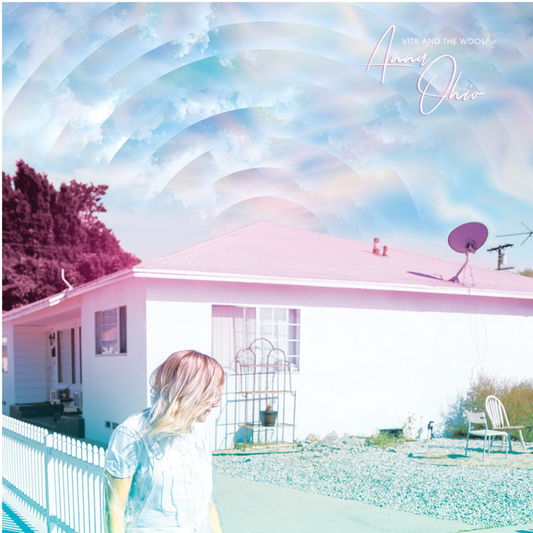Growing up in middle-class suburban Pennsylvania, Jen Pague looked around at the routine of family life and rejected it in full. The suburban isolation, the lack of culture, the white picket fences: “I didn’t want to be part of it in any capacity,” Pague says. So she started a band.
Three years ago, she watched with amazement as Vita and the Woolf’s achievements started to stack up: fawning press and radio attention in their native Philadelphia,...
Growing up in middle-class suburban Pennsylvania, Jen Pague looked around at the routine of family life and rejected it in full. The suburban isolation, the lack of culture, the white picket fences: “I didn’t want to be part of it in any capacity,” Pague says. So she started a band.
Three years ago, she watched with amazement as Vita and the Woolf’s achievements started to stack up: fawning press and radio attention in their native Philadelphia, support tours with Rasputina and Clap Your Hands Say Yeah, a successfully Kick-started debut full-length (2017’sTunnels) and press in Billboard and Elle. But Pague never felt that the album was fully her own vision, and the career-altering reviews and sold-out headlining tours never quite came along. When the whirlwind suddenly died down, Pague thought maybe her music career was over at 25.So in search of reinvention, she moved to Los Angeles, alone. She took aimless drives while looking for day jobs. She went to therapy. And eventually, she met encouraging new friends, and began working on new music in a place without the baggage of home. The music started to come. She wanted to tell a story that could “reflect on, and then move on from adolescence.” So she invented Anna Ohio.Anna Ohio is a fictional character. ButAnna Ohio, the album, is a very real pilgrimage of self-discovery. The album’s interconnected songs tell a self-referential story about a flawed but strong character reaching for reinvention. As Anna, Pague’s dreamlike examination of life under late-stage capitalism (“Home,” “Auntie Anne’s Waitress”) and desire for escape (“Operator”) are somehow more real than reality: They’re a direct line out from a soul-searching heart and mind. The album is both patient and hook-filled. There are echoes of Elliott Smith in the understated guitar work. Longtime bandmate and friend Adam Shumski’s inventive drum pat- terns give the songs a rare rhythmic depth.Most importantly,Anna Ohiois Jen Pague’s vision, through and through. She built it with her own hands. And suddenly the press and the renown seem secondary to what she has already accomplished: Pague wrote, played and recorded an album with the sound she had been searching for. And, through Anna, she told a story worth telling. “I gave up something while writing this record,” Pague says. “Anna Ohioholds my pain, the thoughts of not being good enough to date, hire, love, and respect. It holds my energy and refusal to quit being a human. It holds what I find beautiful when things somehow work out. And it’s a tip of the hat to the people who support and love me.”
Contact
Radio:
joe@thesyn.comPress:
jeff@thesyn.comManagement:
roland@rkbmanagement.comBooking:
jwurpel@apa-agency.com-
Vita and the Wolf - Anna Ohio
Vendor:TLE MusicMultiple options available
Regular price From $8.00Regular priceUnit price per
Contact
Radio:
joe@thesyn.comPress:
jeff@thesyn.comManagement:
roland@rkbmanagement.comBooking:
jwurpel@apa-agency.com


